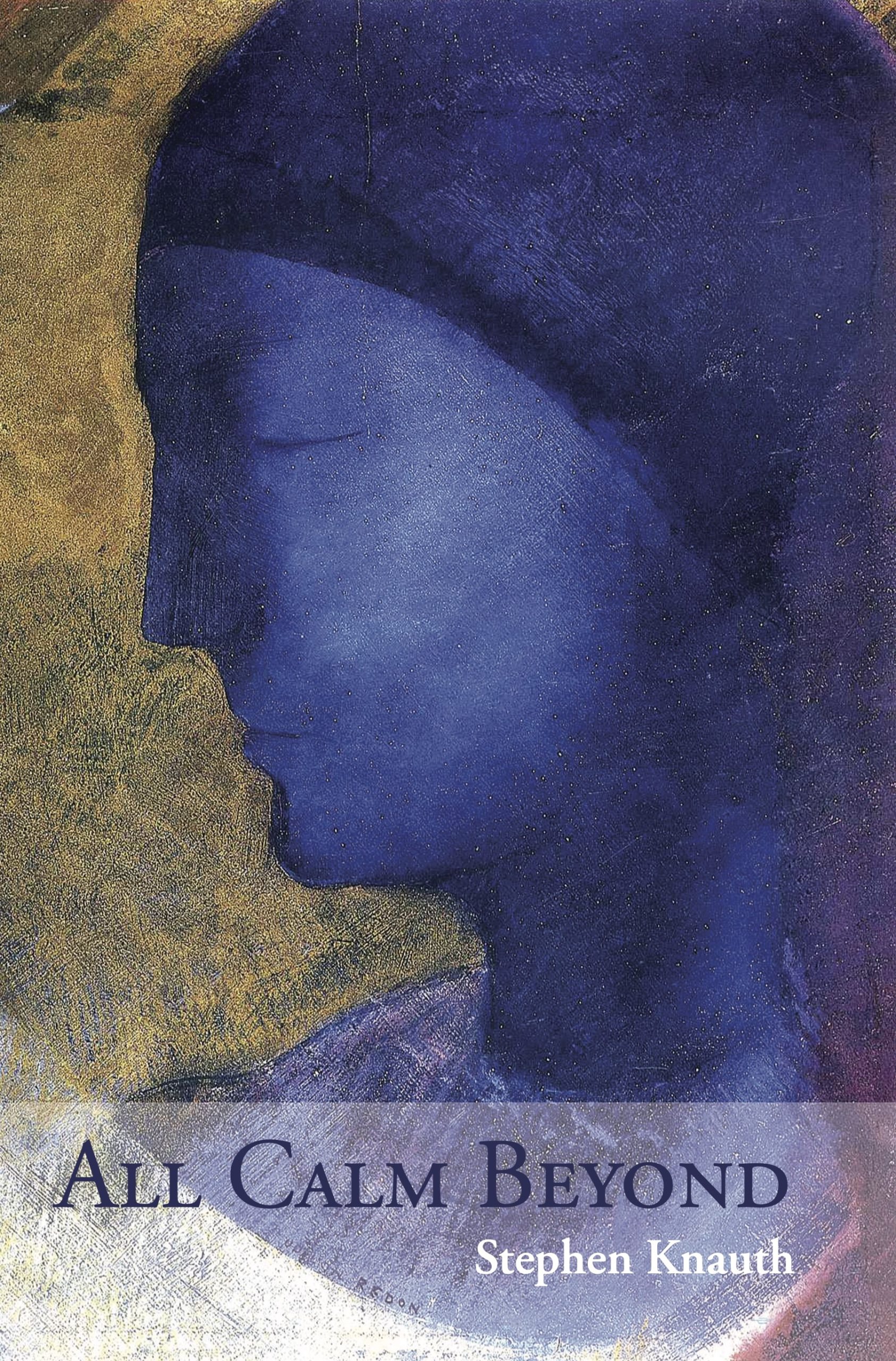
paper • 184 pages • 17.95
ISBN: 978-1-961897-50-2
eISBN: 978-1-961897-51-9
September 2025 • Poetry
Reuniting poems previously published in two separate books, All Calm Beyond brings together the work included in Twenty Shadows (1995) and The River I Know You By (1999), both written by Stephen Knauth in the period after his son Benjamin died of an early childhood cancer. These striking and stricken pages chart the path between acute mourning to the beginning of recovery, asking what it looks like to continue despite the permanence of loss. What it looks like is a halting progression made between stumbles, a battleworn collage of best efforts. This is his impossibly won wisdom: “Grief is like the blind mule you’d like to murder / until you look back and see how far it brought you.” In these lyrics, Knauth mixes the transcendent diction of religion with the plain reality of ordinary speech, Christian imagery with Buddhist teaching, and the human scale of society with the indifferent vastness of nature. If grief is not a redundant abyss the bereft parent continually circles, if its process actually traverses spiritual ground, Knauth approaches and dares ask the inconceivable question faith requires of him: “And death, death of a child, has it likewise its / cruel and sturdy purpose?” No, of course not, these elegies and meditations repeat; yet, in response to the tragedy of surviving one’s child, a father’s sorrow attests to the dimensions of eternity, a measure beyond human comprehension except for the ceaseless pain of existing without his son and the shared devotion that binds family together even after a life is over. Maybe, then, “if only to attach to the bereaved / one end of the silver thread of oblivion, umbilicus / through which ghostly underworld placentas / deliver their dark nutrition?” Yes, and forever, forever, no. The wound is an ouroboros; love is the answer and the question, the conditions that brought forth the child and all that’s left in his wake. Love, that immense and ferocious tenderness for which there is no good synonym. If love makes us susceptible to loss, then “the silence itself recalls what’s missing,- what’s done.” So we sit in the waiting room of this world, listening to what comes through “faintly, faintly, through the membrane,” and remember that what will be is only possible because of what was, and walk forward to reach, perhaps, the calm beyond, because, “not knowing / where they have gone, we are left with our quiet / duty to the dead, with vows to take // and each day break, to embrace / what remains, to give, to glaze / every stick and stamen with our love.”
Tempest
—Hurricane Hugo
Cytoxan, Adriamycin, VM-26.
Tumors bulge like Early Girls.
I lift my chin and launch
a missile of disappointment
toward God. On the street
power lines drape my car.
The muddy upturned
roots of the white birch glisten,
his soul drawing near.
With a blend of power and delicacy, Twenty Shadows scorches the reader. One by one, these poems strip away veils until what is laid bare is the grief at the molten core of the poet’s life. In a breathless Oriental calm, Stephen Knauth loiters at the edges of his loss—a child, after all—cocking an ear, reaching to retrieve whatever is left unconsumed. The imagery is spare and precise, devoid of the maudlin. Here, if anywhere, is a distillation of sorrow. A magnificent achievement, proof that Resurrection is possible—through art.
In the Kabbalah, the death of a loved infant is the source of “tears with equal…tears from the innermost and farthest parts of the heart.” Rooted in loss, Twenty Shadows speaks of the heartbreak at once familiar and unknowable; these poems have the arc of tragedy, and the glint and silence of objects just washed up from the ocean. Clear-eyed and logical, the work reveals, and endures, a core of existence beyond aesthetics or reason—a love that is in the last analysis inhuman. Twenty Shadows is a beautiful, desperate book.
Twenty Shadows is a rending, brilliant book, important in its heartfelt, precise truth-making.
The River I Know You By has the startling clear sense of imagery and idiom gently reminiscent of my favorite Asian and English lyric poems of the Middle Ages. There is also a physical, metaphysical, and spiritual quality to the work that gives it an irrepressible freshness. The sorrow and loss evident, ‘the fragile confection of now.’ The River I Know You By is a terrific book. Stephen Knauth writes beautiful poems.